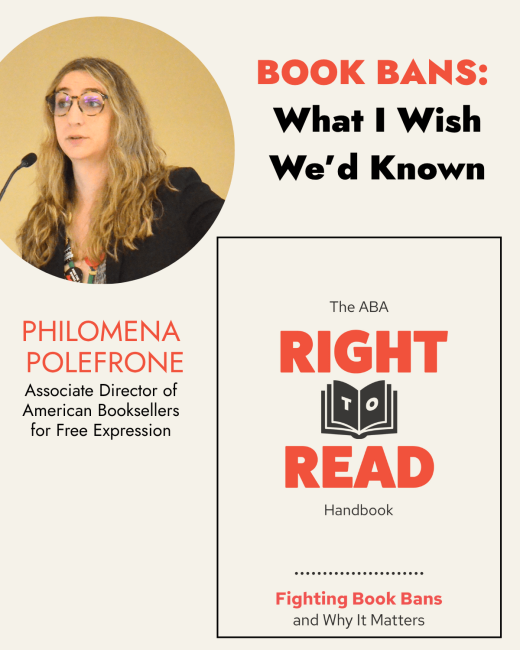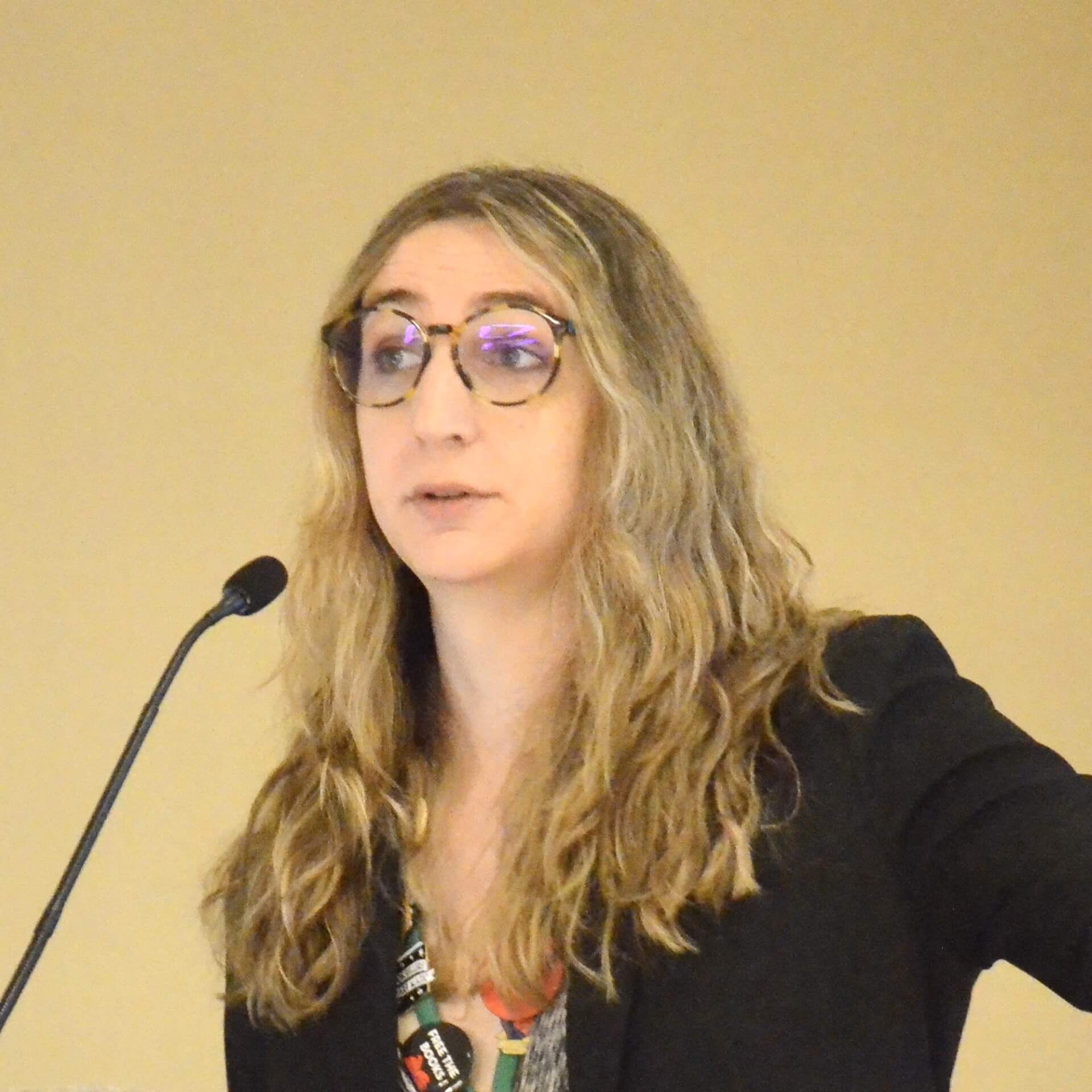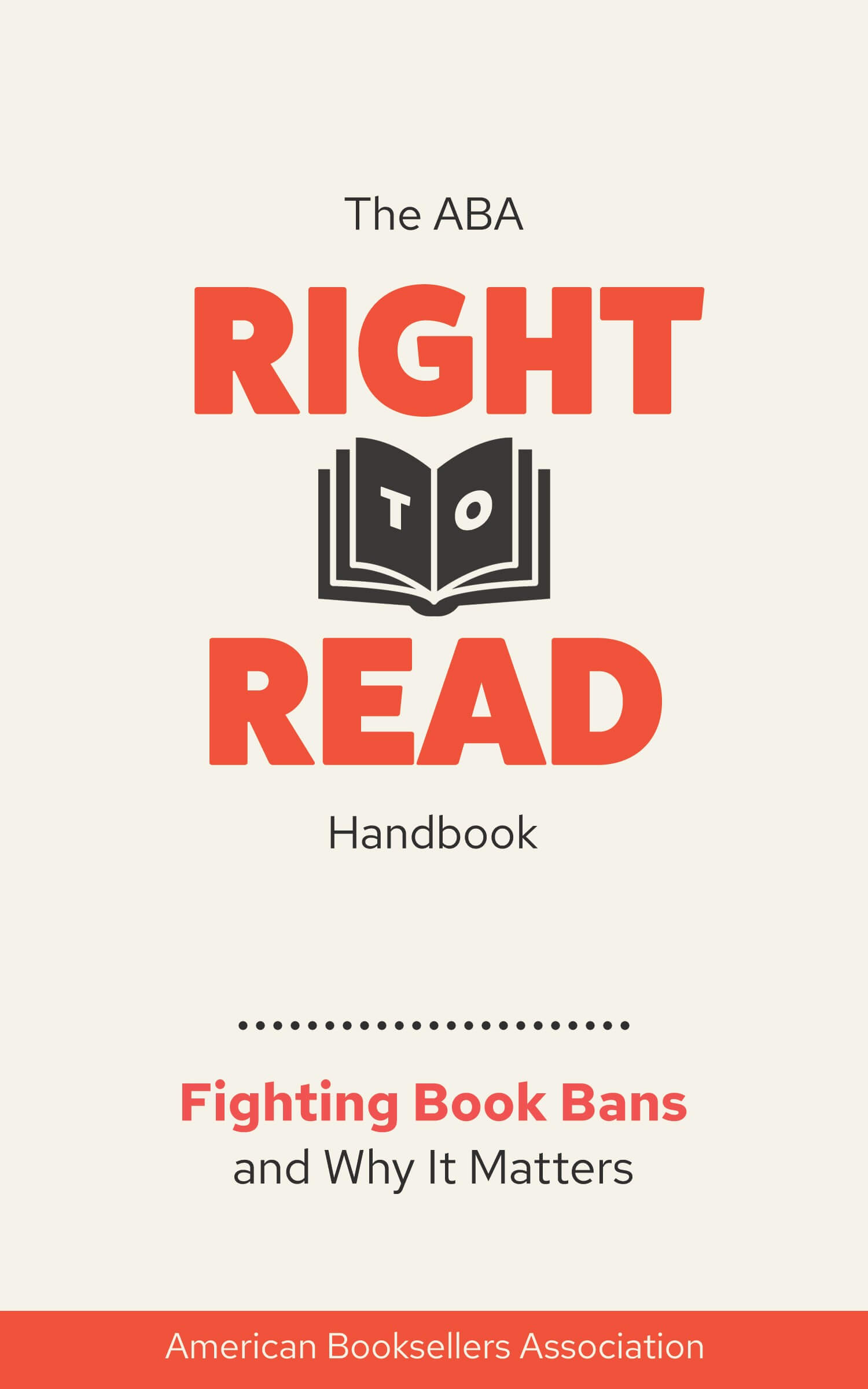
Every year, Banned Books Week shines a spotlight on the harms of censorship and celebrates the freedom to read. While its roots are in the United States, the movement’s message resonates globally: restricting access to books restricts access to ideas. This year, as stories of book challenges and bans continue to dominate headlines across borders, the European and International Booksellers Federation (EIBF) invited Philomena Polefrone, PhD, to share her perspective on what these developments mean for booksellers beyond the US.
Philomena is the Associate Director of American Booksellers for Free Expression (ABFE), the free expression initiative of the American Booksellers Association (ABA), and a LGBTQI+ Global Fellow at the Harvard Kennedy School’s Carr-Ryan Center for Human Rights. In the piece below, she examines how the wave of book bans in the United States has begun to ripple outward — and what European booksellers should know, and can do, to prepare.
Book Bans: What I Wish We’d Known
Five Lessons about Book Censorship by Philomena Polefrone

Picture: Philomena Polefrone, Phd, Associate Director of ABFE
In an age of tariffs, book bans have become the United States’ least-appealing export.
Last year, in Brazil, politicians allied with former Prime Minister Jair Bolsonaro banned books in multiple districts for such offenses as discussing race, depicting female scientists, and violating “good manners.” Also last year, in Australia, a Cumberland City Council member attempted to ban books about queer parents. Though he was thwarted by public outcry, the incident has been taken as a warning. Just recently, a UK parent made headlines after leading the charge to ban The Hate U Give, an award-winning book by Angie Thomas about race in America. The parent claimed it would make white students feel like “the baddies.”
None of these examples are from EU countries, but Europe, as well as its booksellers, should take notice. These headlines sound like they come from newspapers in the United States, but they are becoming more common globally. As the Associate Director of American Booksellers for Free Expression (ABFE) — and as an advocate for booksellers against book censorship in a country that has become notorious for it — I can offer some insight into what might come next outside the US if this trend continues. Here are five things I wish we’d known before extreme censorship groups like Moms for Liberty and their ilk started banning books in Florida and beyond.
- Bookstores are not immune.
In the past year, ABFE has responded to more than 60 requests for support from bookstores experiencing harassment, vandalism, and intimidation because of books they sell, events they hold, or other acts of free expression. The purpose of this targeting is to scare booksellers into compliance with the complainant’s ideology and silence speech that disagrees with it.
Some think bookstores are immune to censorship because they generally do not have book challenge procedures like those of many school or library boards. That’s incorrect. Bookstores face censorship by other means when they have to second-guess their curation for fear of intimidation.
- Book banning spreads.
The current wave of book bans began in the US state of Florida. More locally, we have seen lists of books circulate between groups in neighboring school districts or states. Websites that claim to offer content ratings, but that actually apply deeply ideological lenses and take passages out of context, help would-be censors gather lists of books they want to ban without even reading them. If such a list works in one community or state, other groups in other areas take note, and try to get the list banned in their own backyard.
If you see a book being banned in the next town over, or even in a neighboring country, it’s time to preempt it where you live. Watching for signs of censorship nearby lets you prepare for likely lines of argument (like “this book is pornography” or “this violates my religious beliefs”), tactics (reading passages of books out loud out of context and misrepresenting which part of the library it’s in), and book lists.
You can consult PEN America’s list of books that were banned in the 2023-2024 school year to get an idea of the kinds of books that have been targeted recently — and keep an eye out for data on last year, which is generally released annually during Banned Books Week.
- Organize early.
US book censors were able to change school board policies or take over school districts before anyone was aware they were doing it. Organizing proactively so you can be ready to respond if and when censorship starts in your area is essential to prevent being caught off guard. This can mean gathering resources like Banned Book Résumés and “The ABA Right to Read Toolkit,” familiarizing yourself with the content, and learning about the policies in place at your local school and library regarding book challenges and collection development. It can also simply mean raising awareness about censorship among your customers and having conversations that will help them know what to look for.
- Policy can preserve books.
The most sweeping acts of book censorship happen when decision-makers panic after receiving a complaint (often exaggerated or misleading) about a book’s contents. Curation and weeding policies can prevent fear-based reactions and ensure a book’s artistic, literary, or educational value is taken into consideration. The American Library Association has sample policies for selection and reconsideration of materials in libraries, and ABFE’s resources page has starting points for thinking about your own store’s curation policy. These policies do not need to permit book challenges. But they can give you something to point to if someone is trying to pressure you into removing a book or canceling an event.
A policy is only as good as its implementation, though. In many cases, we see that book bans occur when a school, library, or bookstore does not follow its own stated policies. Hold yourself and others in your community to a high standard of consistency.
- Build coalitions.
Bookstores, schools, and libraries are not competitors, they’re allies in the fight for a robust literary culture. Building relationships with schools and libraries — whether by co-hosting events, selling books at author visits to schools, or cross-posting events and programs — is not just good business. It also makes you more prepared to respond to censorship if and when it arises. Similarly, many customers want to know about book censorship and understand that reading banned books is a way to keep the ideas they contain alive. Gathering banned books together, especially during specific times like Banned Books Week or when censorship is in your national conversation, sells books and starts conversations with potential local advocates at the same time.
No one thing can stop censorship from happening in your area. But bookseller involvement can be the key to spreading the word about censorship attempts and maximizing the chances that they can be rebuffed.
Book bans may be crossing oceans, but EIBF believes booksellers can stay one step ahead — a first step is exploring Philomena Polefrone’s ABA Right to Read Handbook. We thank Philomena for sharing her valuable insights in this blog post.

